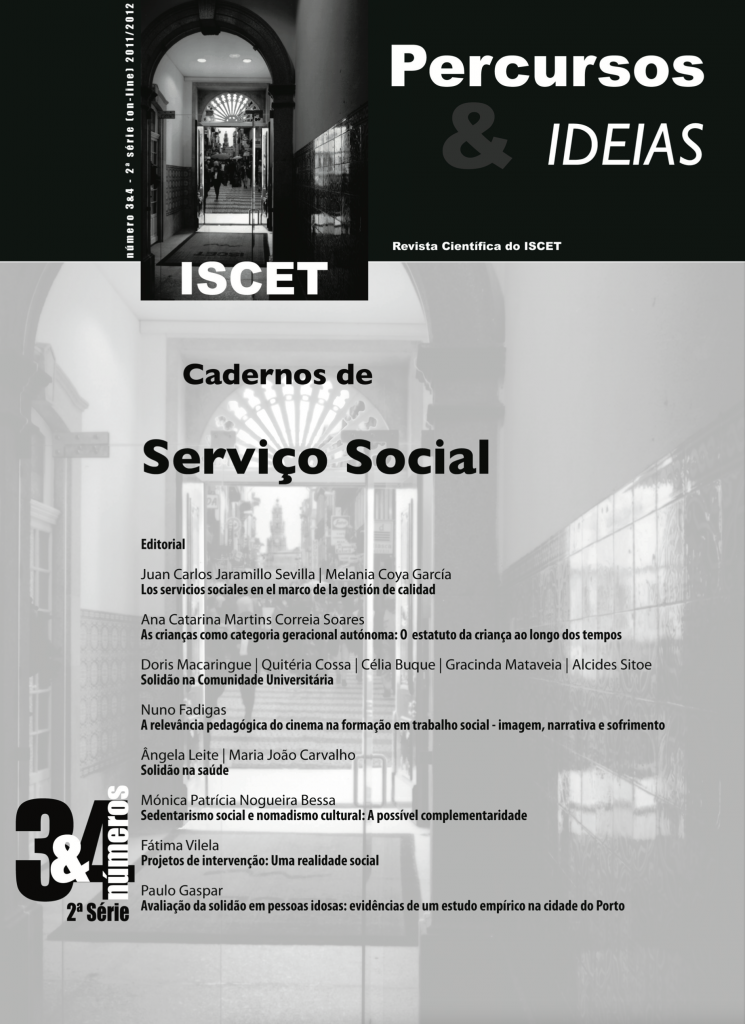Solidão na Comunidade Universitária
Doris Macaringue1, Quitéria Cossa2, Célia Buque2, Gracinda Mataveia2 and Alcides Sitoe2
1 Instituto Superior de Tecnologias e Gestão, Portugal
2 Universidade Eduardo Mondlane, Maputo, Mozambique
To cite this text:
Macaringue, D., Cossa, Q., Sitoe, C. B. G. M. A., Sitoe, G. M. A. & Sitoe, A. (2012), Solidão na Comunidade Universitária, Percursos & Ideias, Vol. 3&4, pp. 21-38.
Abstract
This paper aims to diagnose and understand the magnitude of the loneliness phenomenon within the university community and students’ population. The study begins with literature review that contextualizes the phenomenon of loneliness, discusses the reasons associated with its emergence, its implications on individual’s health, development and psycho-social well-being. It discusses the tools used for its measurement (the Portuguese version of the UCLA Loneliness Scale and the Differential Loneliness Scale for Student Population) type of answers and its processing, objectivity/subjectivity as well as the limitations of the study, in particular with the possible implications of using a tool developed for different socio-cultural and anthropological context. Finally, the study in chapter 5 presents the results produced by gender and education in order to verify the influence of these variables on the survey results. Although, results presented in chapter 5 show, in general, that the situation is not necessarily dramatic, it points out the need to be more aware of the problem. Although results by education and sex do not show clearly, and in a general way, the existence of significant differences between both variables, they do exist in 6 of the 18 questions of the UCLA questionnaire, particularly in what concerns the answers given by the male group.
Keywords
Loneliness, Identity, University, Intervention.


